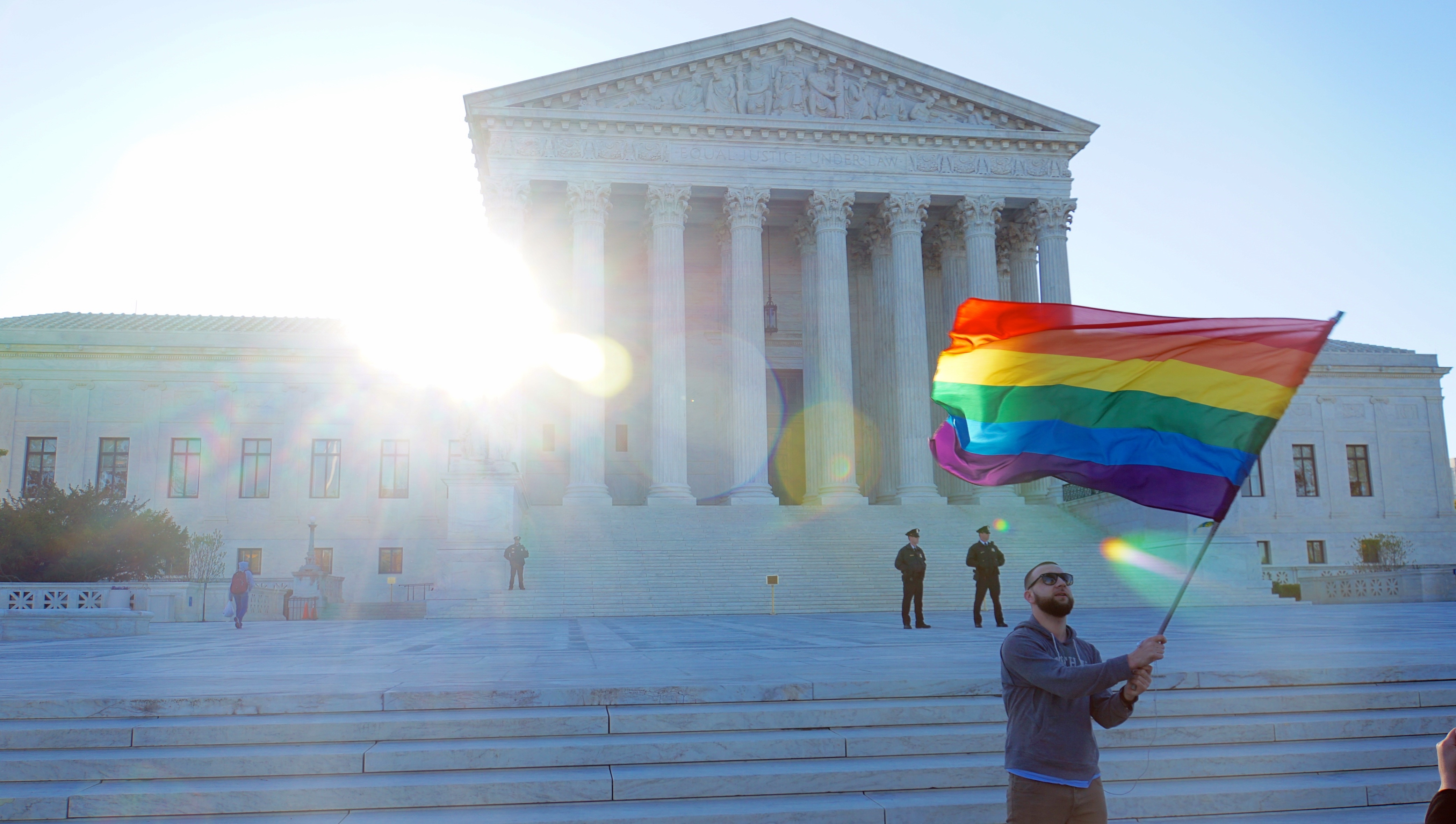The Supreme Court is hearing a major case regarding LGBTQ+ rights

On December 5, the Supreme Court heard arguments in the case Masterpiece Cakeshop, Ltd. v. Colorado Civil Rights Commission. The case involved a baker who refused to make a cake for a gay couple’s wedding based on religious grounds and as such, is expected to become an emblematic case for both LGBT and religious liberty rights.
Kristen Pellot, a member of the organization Advocates for Youth, explains why young people and LGBT+ allies should be paying attention to the case.
I’m from Orlando, Florida, where the Pulse shooting took place. I know people who were in the club that night. That night made it clear to me and many others that there are plenty of people in this country who still feel threatened or even attacked by the mere existence of the LGBT+ community.
Now, over a year later, our community is taking on the Masterpiece Cakeshop case — a case that isn’t really about cake at all. It’s about discrimination. This case could potentially lead to legalizing discrimination against the LGBT+ community because a couple requested a wedding cake and was denied.
Between the Pulse shooting, this Supreme Court case, and dozens of other recent cases involving discrimination against transgender people and other LGBT+ folks, there are still loads of issues our community still faces. For the sake of protecting millions of Americans who are a part of this community, we have to set a precedent that abuse — whether verbal, physical, or of any other form — and discrimination are unacceptable.
One of the best ways we can ensure this freedom from abuse and discrimination on an institutional level is to fight the idea that individuals’ personal ideologies can and should limit the legal liberties of others. That’s where the Masterpiece Cakeshop case comes in, and why it’s so important. The biggest misconception about this case seems to be that the LGBT+ community is asking for more rights than cis and heterosexual people have — a misconception that in turn seems to draw from a bigger misconception that issues of discrimination are situations blown out of proportion by people who are too sensitive. The rhetoric of the Trump administration seems also to have allowed people to believe discrimination is acceptable, and that anybody pushing back on this treatment is a sensitive “snowflake.” It seems to encourage questioning the rights, and often safety, of marginalized people because of the personal feelings of some.
In reality, LGBT+ individuals are just asking for equality: in terms of the services we’re provided and across the board. If this case refuses to allow this equality, it’ll set a precedent that sends our country back decades. We’d be reverting back to times of more blatant legal discrimination, like the Jim Crow era.
Any establishment that exists to provide a service should prioritize doing just that: providing services, not selecting to whom those services are provided. The use of religion as a grounds for discrimination in this context is particularly troubling since religious rights are intended to prevent discrimination by allowing people the right to practice their beliefs without fear of persecution. What’s more, democracies function properly when decisions are made based on the majority of people’s needs as opposed to the personal beliefs of a comparative few.
As a bisexual Afro-Latina, this case could have a lot of repercussions for me in the future. So I’m trying to get involved however I can — with this case and others affecting the LGBT+ community. In addition to contacting political officials, lobbying, and attending rallies and protests, I try to talk with others about all the issues the community faces.
Moreover, I feel that humanizing the LGBT+ community within our culture is a helpful step we need to take to achieve justice. By trying to do this, I’ve learned that the lack of LGBT+ stories and creators is a significant factor in the problematic way LGBT+ people are seen in our culture. To try to combat that, I’ve been trying to start a podcast that gives LGBT+ people of color a space to share their fictional stories, poetry, music, and whatever art they create. Ultimately, we need to find ways to combat dehumanization wherever and whenever it happens and change both the fictional and real-world narratives being created for and about the LGBT+ community.
More articles by Category: Free Speech, LGBTQIA
More articles by Tag: Identity, Supreme Court



























